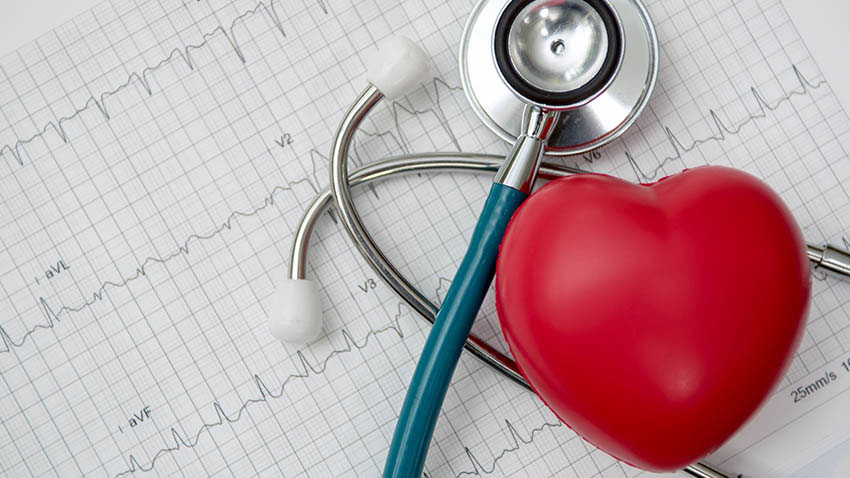According to the World Health Organization, cardiovascular diseases are the top cause of deaths worldwide. It is highly recommended that those who are at risk of developing heart diseases or conditions should have a cardiologist that they regularly visit for screenings and tests to monitor and manage their heart’s health. If you need to get your heart checked in Singapore, you can find a heart doctor in Orchard Road by visiting Cadence Heart Centre.
It may not be widely known, but there are different types of cardiologists. Each heart doctor specialises in a certain field. It is imperative that you consult with the right doctor for your heart condition. This article lists down 10 types of heart doctors and how they can help treat various cardiovascular conditions.
How to be a Cardiologist?
The word “Cardiologist” is a general term used to describe a physician that specialises in treating conditions and diseases that affect the blood vessels and the heart.
Becoming a cardiologist is no easy feat. One must go through medical school, residency, and specialised training. About 10 years is spent in education and training and, on top of that, one must pass a medical licensure exam for them to be able to practice their profession. Of course, learning does not stop once they are able to accept patients. To be up to date with the most recent advancements in medicine and medical technology, heart doctors must continue to learn.
When is a cardiologist needed?
If you have a family history of cardiovascular diseases, then your primary health care provider may recommend you to see a cardiologist regularly. Despite being generally healthy you may need to check-in with a heart doctor in case you develop signs and symptoms that may be related to a heart ailment, such as:
- Dizziness or lightheadedness
- Chest pain
- Fatigue
- Shortness of breath
Likewise, a cardiologist is needed to treat the following cardiovascular conditions and diseases:
- Atherosclerosis (arterial disease)
- Angina (chest pain)
- Aorta problems
- Artery diseases
- Blood clots
- Cardiogenic shock
- Cardiomyopathy
- Endocarditis
- Heart abnormalities
- Heart attack
- Heart failure
- Myocarditis
- Stroke
- Sudden cardiac arrest
What are the common tests recommended by cardiologists to identify heart ailments?
To get an accurate diagnosis of a heart condition or disease, a cardiologist may recommend any of the following:
- Blood tests
- Cardiac magnetic resonance imaging (MRI)
- Cardiac computed tomography (CT)
- Chest X-ray
- Coronary angiogram
- Coronary computed tomography angiogram (CCTA)
- Echocardiogram
- Electrocardiogram (ECG or EKG)
- Event monitor
- Holter monitor
- Transesophageal echocardiogram (TEE)
What are the different types of cardiologists?
There are various types of cardiologists that are expert in treating or managing specific heart conditions and diseases. Here are some:
- Adult congenital heart specialists
- Cardiac Imaging specialist
- Cardio-oncologists
- Electrophysiologists
- General adult cardiologists
Adult congenital heart specialists. Doctors who specialise in this branch of cardiology attend to adults who have heart defects that were developed prior to being born. Congenital heart specialists help patients in making critical decisions regarding factors that could influence their condition like choosing medications.
Cardiac imaging specialists. A cardiologist that is an expert on this field works by providing images of the heart that are crucial in giving accurate evaluation and diagnosis, which are important when planning for a patient’s treatment.
Cardio-oncologists. Experts in cardio-oncology are needed when treating cancer patients that are at risk or have a family or personal history of cardiac condition or disease. Cardio-oncologists help in cancer treatment by monitoring the heart for presence of any disease that can be caused by a side effect of the treatment used to combat cancer. If a cardiovascular disease is detected, a cardio-oncologist may give directions to change the cancer treatment or advise medications to treat the heart ailment.
Electrophysiologists. Patients who have irregular heart rhythms or heartbeats that are either too fast or too slow will need to be seen by an electrophysiologist. Arrhythmias, also known as heart rhythm abnormality, can be identified by electrophysiologists through tests, such as electrocardiography (ECG or EKG). They can also help in improving the heart’s function and the overall quality of life of a patient by implanting cardiac defibrillators and pacemakers, which regulate the heart’s irregular rhythm.
General adult cardiologist. Diagnosis and treatment of general cardiovascular problems that affect the function of the blood vessels and heart are done by general adult cardiologists. They can also prescribe preventative treatments for heart problems. A patient may consult this type of heart doctor when symptoms like chest pain, shortness of breath, fatigue, and dizziness occur.
What happens during a consultation with a cardiologist?
It is important to be prepared during your consultation with a cardiologist. On the day of your appointment, be ready to answer questions relating to the medical history of you and your family. Your heart doctor will need to know any pre-existing cardiovascular conditions that you or any of your close relative may have. Your cardiologist will also ask about the symptoms that you are experiencing and other factors that contribute to this occurrence. You should also inform your doctor about all the medications that you are currently taking or have taken in the past.
Also, expect to undergo a thorough physical exam. Your cardiologist will take time and listen closely to your heart. By doing this, they will be able to hear the rhythm of your heart and know whether the blood flows easily around your heart. Aside from this, your doctor may recommend you to take certain tests to monitor the health of your heart. You may be subjected to an electrocardiogram test during your initial appointment.
Your doctor should be able to explain your heart’s condition following your consultation. Do not forget to ask questions or raise your concerns. It is important that both doctor and patient are able to establish open and clear communication in order to reach a correct diagnosis and a well-planned treatment to treat any existing heart problem.
Cadence Heart Centre – Dr Devinder Singh
Mt Elizabeth Hospital, 3 Mount Elizabeth #14-13
Mt Elizabeth Medical Centre, Singapore 228510
(65) 8318 9884
(65) 6369 8789
(65) 6369 2789









